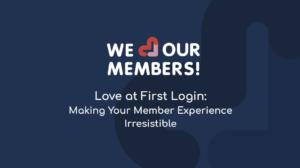Revolutionizing Healthcare Management for Long-Term Illnesses: A Human-Centered Approach
In the digital age, healthcare management is evolving rapidly, focusing on improving the lives of individuals living with long-term illnesses. At the heart of this evolution is integrating technology with a human-centered approach, aiming to make health products more empathetic, intuitive, and effective. At Accella, we have a proven track record in the medical world, with expertise in areas such as HIPAA compliance, FDA documentation, Clinical trial management portals, legal review, and EMR/EHR integration. We’ve built innovative digital solutions for clients in the medical device industry, including Biofire, Zoll, Mammotome, Bausch+Lomb, BCAT, Sana, and Draeger (to name a few). Our diverse portfolio in other sectors, like professional associations (personalization and advocacy focused), traditional and modern energy sector (IoT and data visualization), and consumer brands, gives us a unique and broad perspective that can be leveraged in the healthcare sector.

The Current Landscape
Inefficiencies, outdated practices, manual processes, and escalating costs have long burdened traditional healthcare systems. Legacy software often lacks the flexibility and user-friendly interfaces needed in today’s fast-paced world. The result is systems that can be slow, confusing, and frustrating for patients and healthcare providers. This is particularly problematic for long-term illnesses, where effective management can significantly impact the quality of life. Moreover, the high costs associated with healthcare are a significant ongoing concern. Technological solutions that can streamline processes and reduce these costs are underutilized, often due to resistance to change and a lack of understanding of the potential benefits.
The Need for Change
The need for change is evident. Market research shows a growing demand for more efficient, user-friendly health management solutions. Patients want to be more involved in their healthcare decisions, and healthcare providers are looking for ways to improve patient outcomes while reducing costs. This is where digital health products come into play.
Adopting a Product Mindset in Healthcare Technology Development
It’s crucial to understand that apps, portals, and dashboards are not just tools but products in their own right. They are designed to meet specific user needs, solve problems, and provide value. At Accella, we approach the development of these digital solutions with a product mindset.
This means we don’t just focus on the technical aspects of development. Instead, we consider the entire user journey, from the initial onboarding to the daily usage and long-term engagement. We aim to create products that are functional, enjoyable to use, and provide real value to the users.
We believe in the power of continuous improvement. We understand that a product is never truly ‘finished.’ It needs to evolve with the changing needs of its users and advancements in technology. Therefore, we incorporate user feedback, data analysis, and market trends into our development process to ensure our products remain relevant, effective, and user-friendly.
In the healthcare industry, this product mindset is critical. Health apps, portals, and dashboards can significantly impact patient outcomes, healthcare delivery, and overall health management. By treating these solutions as products, we can ensure they are designed and developed to meet the unique needs of patients, healthcare providers, and other stakeholders in the healthcare ecosystem.
Transitioning to a Human-Centered Approach
As we navigate the intersection of technology and healthcare, we strongly emphasize a human-centered approach. This approach is not just about creating user-friendly interfaces; it’s about understanding the emotional journey of patients living with long-term illnesses such as amputation, cancer, and various other diseases.
We acknowledge the struggles and aspirations of these patients, and we strive to design digital solutions that genuinely resonate with their needs and experiences. This human-centered approach ensures that our products are not just technologically advanced but also empathetic and impactful, truly making a difference in the lives of those they serve.
6 Guiding Tenets for Effective Healthcare Solutions
- Endorsed by Medical Professionals: Trust in health products is significantly enhanced when the knowledge and expertise of medical professionals back them. The credibility of a health app is not just about its functionality but also its connection to the medical community. This endorsement ensures that our solutions are innovative but also reliable and safe.
- Personalized for the User: Every individual is unique, and so are their healthcare needs. Our custom solutions are designed to understand the user comprehensively, considering their lifestyle, preferences, and realistic commitments. This level of personalization allows us to tailor our products to cater to the user’s unique needs, enhancing their experience and improving outcomes.
- Encourages Habit Formation: Information alone is not enough to improve health outcomes. Our solutions inspire users to take action and form habits. We believe in the principle of atomic habits, where small, consistent actions lead to significant long-term results. This active engagement is a vital part of our approach at Accella, fostering a proactive approach to health management.
- Data-Driven Continuous Improvement: In the digital age, data is a powerful tool for understanding user needs and improving health outcomes. We tailor our solutions to gather valuable data, providing insights into user behavior and health trends. This data-driven approach allows us to improve your products continuously, ensuring they remain relevant and practical as user needs evolve. Notably, the user remains at the center of our activities. We use data to enhance their products and empower users, giving them the information they need to take control of their health.
- User-Friendly Design: The effectiveness of a health product is determined by its usability. Our solutions are designed to present information in a way that users can easily understand. If a user needs to search elsewhere for clarity, the product has not fulfilled its purpose. We strive to make our solutions intuitive and user-friendly, enhancing the user experience and ensuring they can make the most of our tools.
- Alleviating the Wait: Waiting is a common pain point in traditional healthcare systems. Whether it’s for test results, a doctor’s appointment, or the progress of a treatment plan, these periods of inactivity can exacerbate existing health conditions and negatively impact mental health. Waiting often leads to unnecessary in-person visits, consuming valuable time and resources. In our solution design, we aim to alleviate this issue. By creating digital health products that provide continuous engagement and real-time communication/feedback, we can reduce the personal toll and health impacts of waiting. This approach improves the user experience and contributes to better health outcomes.
Features of a Human-Centered Health Product
A human-centered health product should include features that support these tenets. This could include:
Onboarding: A user’s first interaction with a product sets the tone for their entire experience. A simple and intuitive onboarding process is essential to help users understand how to use the product effectively. This includes clear instructions, interactive tutorials, and immediate access to critical features. The goal is to make the user feel comfortable and confident in using the product from the get-go.
Educational Library: Knowledge is power, especially when managing one’s health. An educational library within the product can provide users with valuable information about their condition, treatment options, and self-care strategies. This could include articles, videos, webinars, and interactive content, all vetted by medical professionals. The library should be easy to navigate and personalized to users’ needs.
Communication Channels: Effective communication is critical in healthcare. Our products include communication channels that allow users to connect with healthcare providers, ask questions, and receive support. This could consist of HIPAA compliant; messaging, video consultations, and secure community forums. These channels give users a sense of connection and reassurance, knowing they can reach out when needed.
Action Plans: Managing a long-term illness requires a proactive approach. We can help ease creating and maintaining personalized action plans that help users manage their health more effectively. These plans can be tailored to the user’s condition, lifestyle, and goals and designed to encourage active participation in their healthcare. They can include recommended exercises, dietary advice, and medication schedules.
Progress Tracking: Seeing progress can be a powerful motivator. Our products include progress-tracking features that help users see their progress over time. This could include health metrics, goal tracking, journaling, and visual progress charts. These features provide motivation and help healthcare providers monitor the user’s progress and adjust treatment plans as needed.
Notifications & Reminders: Life can get busy, and it’s easy to forget things. That’s why our products include notifications and reminders to help users stay on track with their treatment plans, appointments, and medication schedules. These reminders can be personalized to suit the user’s preferences, ensuring they are timely and effective.
By integrating these features into our digital health products, we aim to provide a comprehensive solution that empowers users to take control of their health, improves communication with healthcare providers, and ultimately leads to better health outcomes.
Impact on Traditional Businesses
The integration of digital health products into the healthcare system can have a significant impact on traditional businesses. It can improve patient outcomes, reduce healthcare costs, and increase patient satisfaction. For healthcare providers, it can streamline processes, improve efficiency, and reduce the burden on healthcare professionals. Furthermore, the potential for subscription models could revolutionize the industry. These models could be sold to insurance companies, as care is monitored and managed digitally with constant improvements to the processes and maintenance. This approach allows for rapid adaptation and improvement, a feature common in technology products but often lacking in traditional healthcare.
The Future of Healthcare
By integrating these tenets, we can create a digital health product that revolutionizes managing long-term illnesses. Such developments would improve patient outcomes and reduce healthcare costs, making it a win-win-win for patients, healthcare providers, and insurance companies.
The future of healthcare is here, and it’s more human than ever. By focusing on empathy, intuitive design, actionable insights, trust, and ongoing support, we can create health products that genuinely make a difference in the lives of those with long-term illnesses. At Accella, we are committed to partnering in this journey, leveraging our expertise to build solutions that truly make a difference.






